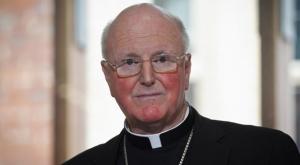This is the second of two blogs on the Evangelical – Progressive Divide.
For there to exist a reasonable conversation between evangelicals and progressives we must first cut past all of the political posturing that is part of the current progressive versus evangelical standoff in United Methodism and other Christian denominations. Right now factions are fighting for power within institutions. Such fights draw in the worst kind of people and draw out the worst in the rest of us. But those negative qualities do not define the progressive agenda.
Nor should we confuse the progressive agenda with the way in which politicians seek to use the word progressive to assemble coalitions of voters. All religious movements are subject to abuse and manipulation. It doesn’t define them.
The word progressive identifies the core value of the movement. It wants to make progress. And it wants to do so because it sees the status quo of American Christianity as fundamentally flawed and unjust. For progressive Christians God incarnate in Jesus Christ has invited the followers of the living Christ into a process of continual self-examination in relation to the ideals of God’s Reign. The church must continuously reform its life to conform to and realize scriptural ideals such as inclusion of diverse ways of being human, particularly those of marginalized peoples, and related to this love, grace, and human fulfillment in all its dimensions.
The realization of these ideals is located by progressives in the future. They are not manifest in either the ordering of the church or human life more generally in the present. And in the Christian past was, in relation to the ideals of God’s Reign, even worse. Thus the full meaning of God’s Reign is revealed only in the spirit-led evolution of human self-discovery, a process whose trajectory rather than goal is decisively captured in the life of Jesus Christ. The affirmation that Christ is risen and lives in the church through the Spirit directs the church toward an ever emerging understanding of God’s Reign rather than the mere victory of God’s order over the fissiparous power of death.
For progressive Christians what it means to be human, as revealed in the “true human, Jesus,” is to be on a journey of self-realization and fulfillment. Just as Jesus overflowed all the boundaries and expectations of the culture of his day, so contemporary humans should recognize human possibilities beyond the narrow confines of conventional sexual expression, gender roles, vocations, and political and economic structures of contemporary society. Only then can they discover all the different ways of being faithful to God’s Reign across the ever unfolding possibilities manifest in human diversity.
Progressive Christianity is attractive, particularly to those who feel that the traditional Christian understanding of the order of human society and human-divine relations has no place for their experience of being human, whether in terms of sexuality, intellectual curiosity, spirituality, or engagement with social justice. It is attractive to those for whom the present order of human life is alienating and for whom the past, particularly the Christian past, is oppressive and demeaning to their personhood. Progressive Christianity offers a future full of possibilities for those uncertain of whether their own potential has been realized or ever could be realized within a traditional Christian order.
This attractive vision faces the question of whether absent a definitive example its ideals can distinguish between what is actually good for human flourishing and the mere fulfillment of human desires. What makes these ideals anything other than a humanly evolved projection of aims useful for the continuation of human society? And can these ideals actually provide sufficient constraints to prevent the kind of anarchic hedonism already characteristic of contemporary American society? Is an appeal to the leading of the Spirit of Christ, absent any disciplined order, adequate to overcome the power of sin?
For progressives these last questions may be beside the point. The damage done to human lives by the so-called discipline of the church is so great as to demand its overthrow. Faith is not a social order, it is the inspiration to follow the risen Christ toward God’s Reign. It is hope in things unseen. And those unseen things are the common inheritance and destiny of all human kind according to scripture. The uniqueness of Christ is not found in his promotion of a social order, but who he is for the marginalized and oppressed. And for them the living Christ is freedom.











